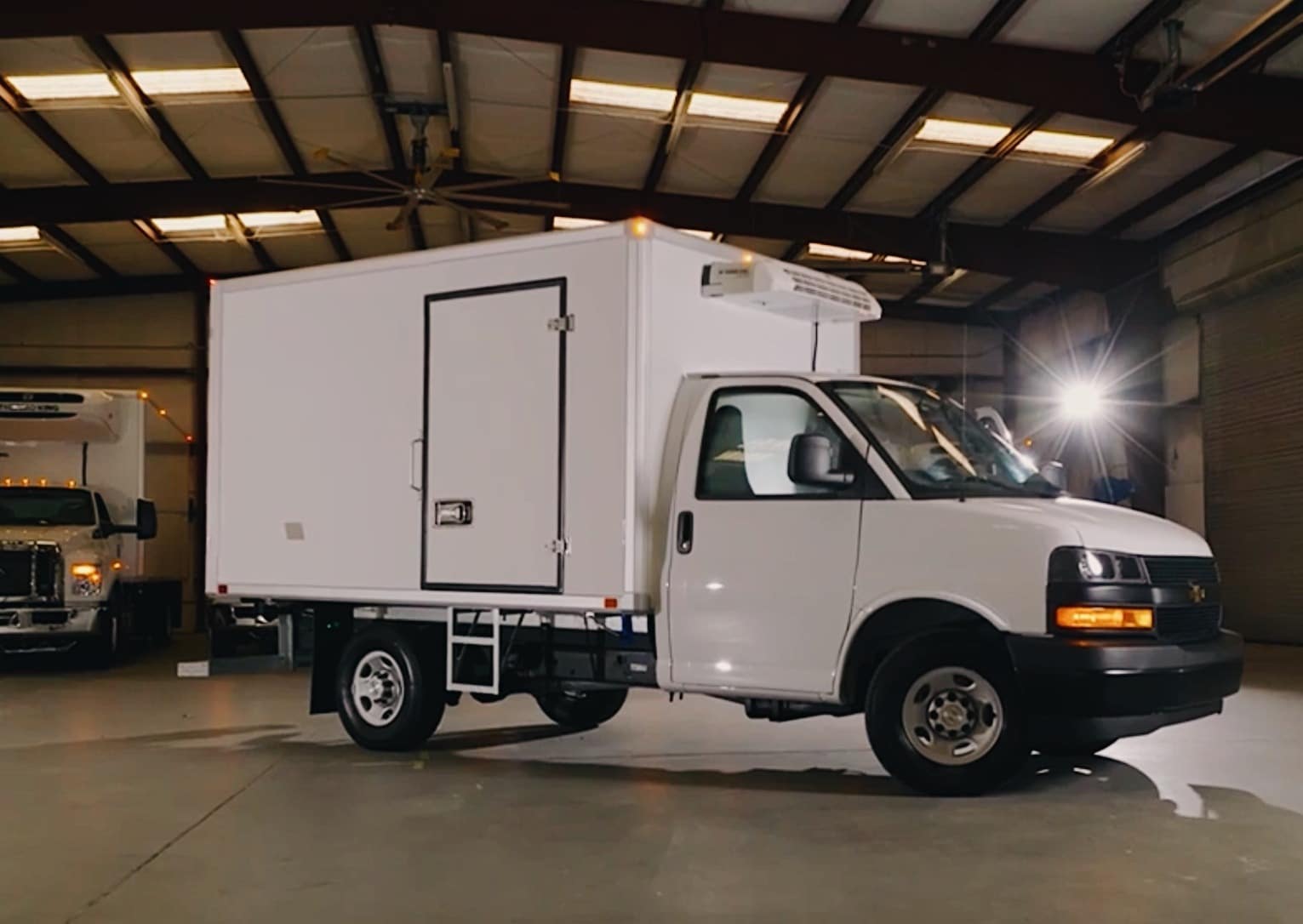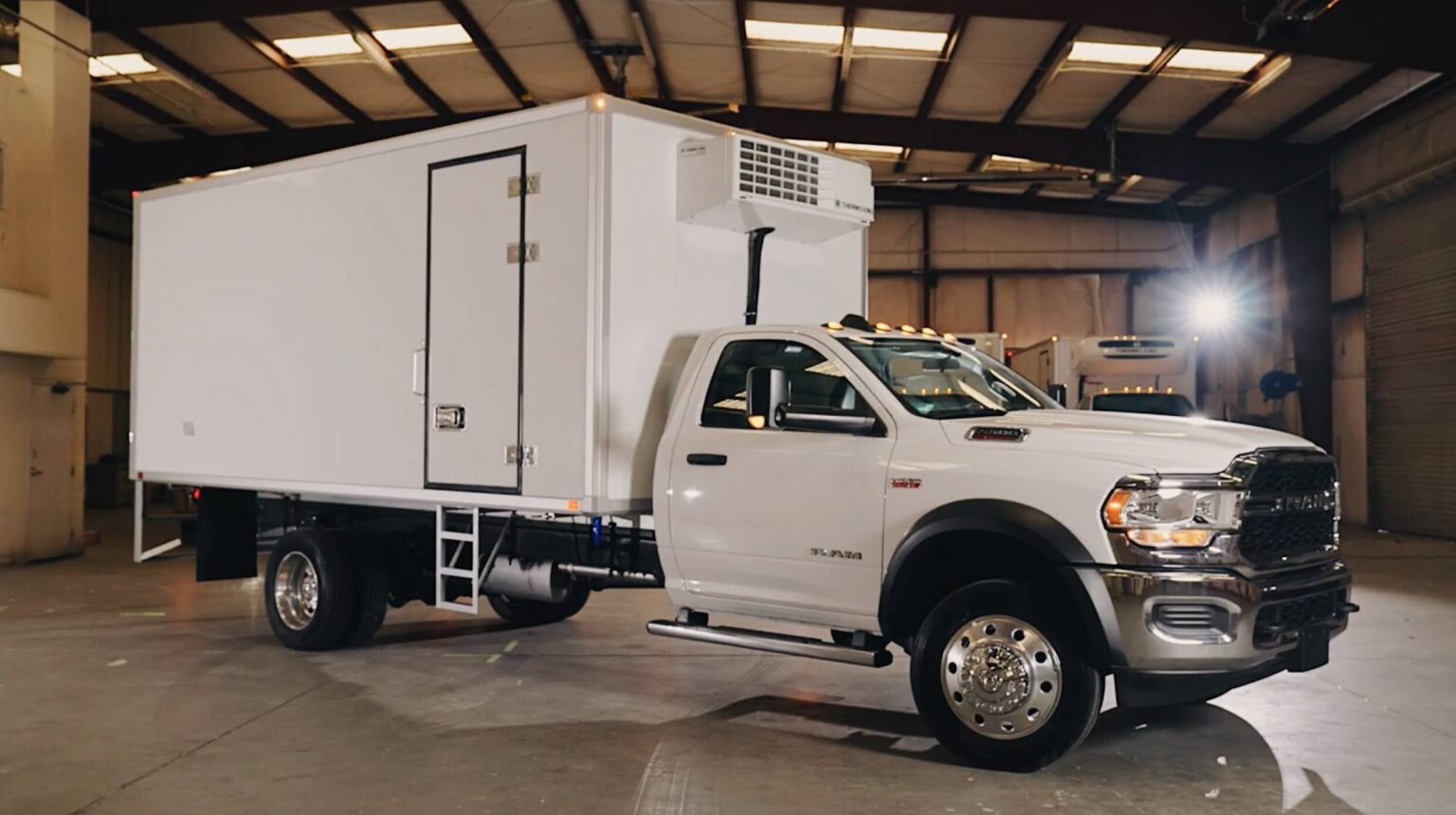Refrigerated Transportation Thermo King: The Ultimate Option
Refrigerated Transportation Thermo King: The Ultimate Option
Blog Article
Leading Advancements in Transportation Refrigeration: Enhancing Effectiveness and Safety And Security
The landscape of transportation refrigeration is undertaking considerable transformation, driven by technologies aimed at improving both performance and safety. As these technologies continue to advance, it is important to explore their implications on functional techniques and regulative compliance, motivating a better examination of just how they reshape the future of transportation refrigeration.
Smart Temperature Keeping An Eye On Equipments
In the world of transport refrigeration, smart temperature tracking systems have actually become a vital advancement for ensuring the stability of temperature-sensitive items. These sophisticated systems take advantage of Internet of Things (IoT) technology to give real-time data on temperature changes, making it possible for drivers to preserve optimal conditions throughout the supply chain. By constantly tracking the temperature level of refrigerated containers and automobiles, companies can swiftly determine deviations that may compromise item high quality.

Moreover, smart surveillance systems often incorporate automated signals and notifications, permitting stakeholders to react promptly to any type of prospective issues. This proactive technique not just minimizes the danger of wasting however also boosts conformity with governing standards governing food security and pharmaceutical transportation.
The combination of data analytics within these systems also promotes anticipating upkeep, helping operators to anticipate prospective tools failures before they occur. This capacity reduces downtime and maximizes functional effectiveness, eventually resulting in set you back financial savings.
Eco-Friendly Refrigerants
Smart temperature monitoring systems play a crucial role in maintaining item top quality, but the effectiveness of transportation refrigeration likewise pivots on the selection of refrigerants used. In comparison, arising options like hydrocarbon-based refrigerants and hydrofluoroolefins (HFOs) present reduced GWP choices, using both effectiveness and sustainability.
These eco-friendly cooling agents not just minimize environmental impact but additionally straighten with international laws aimed at terminating harmful substances. Their adoption can result in enhanced power effectiveness, eventually minimizing operating expense for transport refrigeration systems. The usage of all-natural cooling agents, such as ammonia and carbon dioxide, has actually obtained grip due to their exceptional thermodynamic properties and reduced environmental impact.
Purchasing green cooling agents is not simply a regulative compliance measure; it represents a strategic choice that boosts brand name track record and fosters customer commitment. refrigerated transportation thermo king. By prioritizing lasting methods, firms can add to a greener future while guaranteeing the integrity of transferred goods
Advanced Insulation Products
Utilizing innovative insulation materials is crucial for maximizing transportation refrigeration systems, as they considerably enhance power efficiency and preserve consistent temperature level control. Standard insulation methods usually fall brief in stopping thermal transfer, resulting in raised energy intake and varying temperature levels within refrigerated areas.
Emerging products such as vacuum cleaner protected panels (VIPs) and aerogels supply exceptional thermal resistance, permitting for thinner profiles without endangering performance. VIPs, for circumstances, make use of a vacuum layer to reduce conductive and convective heat transfer, making them suitable for space-constrained applications. Aerogels, recognized for their porous and light-weight structure, offer outstanding insulation while substantially minimizing total system weight.
Moreover, including phase adjustment products (PCMs) into insulation systems can better support temperatures during transit. These materials absorb and release thermal energy, successfully buffering against exterior temperature variations.
The combination of these innovative insulation materials not only decreases site link the functional costs connected with energy consumption but additionally extends the shelf life of temperature-sensitive items. As the transport refrigeration sector remains to develop, the adoption of ingenious insulation modern technologies will certainly be pivotal in improving both performance and security in chilled transportation.
Automated Course Optimization
The performance of transportation refrigeration systems is substantially boosted through automated path optimization, which leverages advanced formulas and real-time information to establish one of the most effective courses for shipment. By evaluating various factors such as website traffic patterns, climate problems, and distribution home windows, these systems can dramatically lower traveling time and fuel intake.
Automated course optimization minimizes human mistake and subjective decision-making, which can cause why not try this out ineffectiveness. This innovation enables fleet supervisors to designate resources better, making certain that cooled goods maintain their called for temperature throughout the trip. By enhancing routes, firms can additionally improve consumer contentment with timely distributions.
In addition, automated systems can adapt to unforeseen scenarios, such as road closures or unexpected traffic spikes, permitting for dynamic rerouting. This flexibility not only shields the stability of temperature-sensitive items yet additionally adds to general functional efficiency.
Applying automated course optimization can lead to significant expense financial savings while decreasing the carbon impact associated with transport. As companies progressively focus on sustainability, this development attracts attention as a vital part in modern-day transportation refrigeration, aligning operational objectives with ecological duty. Ultimately, automated path optimization stands for a significant development in the pursuit for efficiency and security in transportation refrigeration.

Real-Time Data Analytics
Automated path optimization significantly gain from the integration of real-time data analytics, which supplies crucial insights right into the performance of transport refrigeration systems. By utilizing real-time information, transport drivers can check Extra resources temperature level variations and tools performance, ensuring that disposable items are preserved within required parameters throughout transportation. This positive strategy not only boosts the high quality of the moved items however likewise alleviates the threat of perishing and loss.

In enhancement to boosting efficiency, real-time analytics enhances safety by guaranteeing compliance with regulative standards for temperature control. This not only protects public health however likewise fortifies a firm's credibility - refrigerated transportation thermo king. As the transportation refrigeration industry progresses, the integration of real-time data analytics arises as a cornerstone for driving innovation, sustainability, and functional excellence
Conclusion
In final thought, the advancements in transportation refrigeration substantially boost both effectiveness and safety and security within the industry. Smart temperature level surveillance systems and real-time information analytics supply important oversight, while eco-friendly refrigerants and advanced insulation products add to sustainability and power efficiency. Furthermore, automated course optimization algorithms not only lower travel time however also minimize ecological effect. Collectively, these advancements stand for a critical advancement in transportation refrigeration, guaranteeing compliance with regulatory standards and advertising a greener future.
The landscape of transport refrigeration is undertaking substantial improvement, driven by advancements intended at improving both effectiveness and safety.Smart temperature level monitoring systems play a vital duty in keeping item high quality, however the effectiveness of transportation refrigeration also hinges on the choice of cooling agents used. Their adoption can lead to improved power effectiveness, ultimately minimizing operating costs for transport refrigeration systems. Ultimately, automated route optimization represents a significant improvement in the pursuit for performance and safety in transport refrigeration.
In final thought, the improvements in transportation refrigeration substantially enhance both performance and safety within the sector.
Report this page